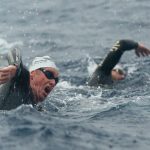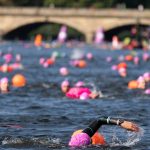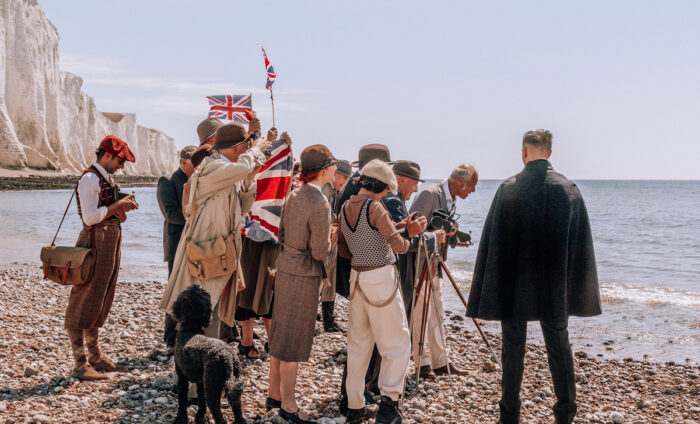
Swimming pioneer Mercedes Gleitze honoured with blue plaque in Brighton
This week, a plaque has been unveiled in Brighton in honour of Mercedes Gleitze, the first British woman to swim the English Channel. A biographical drama film will also be released later this year, delving into her intriguing story which has largely been untold until now.
Mercedes completed her iconic Channel crossing in October 1927, but she didn’t stop there. She went on to be the first person to swim around the Isle of Man, and the first person to swim across the Strait of Gibraltar.

Blue plaque unveiled in Brighton to honour Mercedes’ successes. Photograph: Martin Tomes
Living and and training in Brighton, Mercedes went on to have children and never spoke of her swimming successes. It was only after she died that her swimming stories came to light, when her children discovered suitcases full of newspaper cuttings, letters, journals, photographs, telegrams and documents uncovering a successful and colourful swimming career.
In a time when ‘a woman’s place was in the home’, Mercedes’ achievements are all the more remarkable. Her life and story is celebrated in the upcoming film Vindication Swim which will be released later this year.
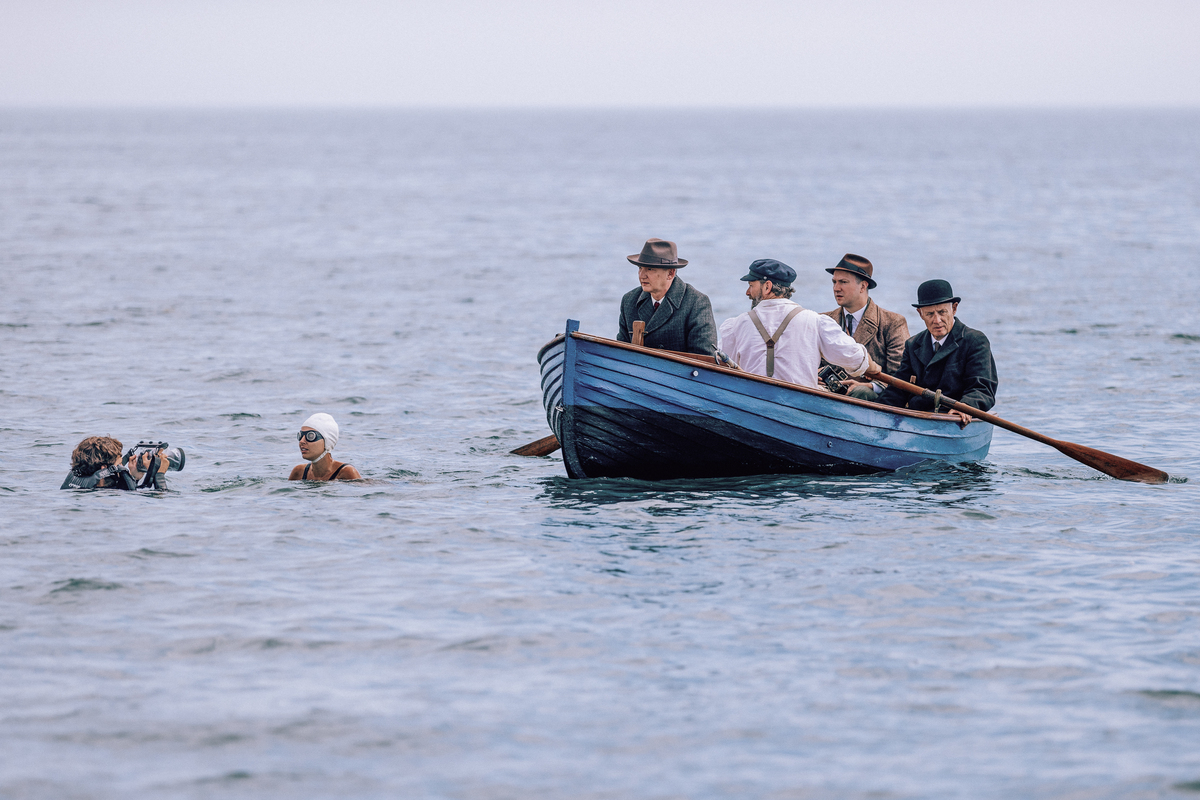
Filming underway for the upcoming film ‘Vindication Swim’. Photograph: Kevin Harwood
Back in 2019, our contributing editor Ella Foote met with Doloranda Pember, Mercedes’ daughter. Mercedes is no stranger to Outdoor Swimmer magazine; her intriguing tale has often been woven into other swim stories that have featured in the pages of our magazine.
It was only after her mother’s death in 1981 that Doloranda and her siblings discovered what a legend she was. After having her own children and retiring, Doloranda revisited her mother’s archives and published her mother’s biography, In the Wake of Mercedes Gleitze: Open Water Pioneer.
“I still occasionally feel upset about my mother’s reticence to talk about her life as a sportswoman,” Doloranda told us. “It has left big gaps in my knowledge of her early years. When drafting the biography I had to rely solely on her letters and media/witness coverage, but these reports didn’t contain the fine detail of her day-to-day existence during her swimming years.”
“Thinking about my mother, a woman who didn’t have full health, I found it difficult to read about her as a swimmer. But it did me the world of good to know she wasn’t always unwell, in pain or always shut in. I could finally imagine my mother as a healthy woman. Seeing the beautiful photos of her, knowing she was a modest person and yet was happy to be photographed in her swimsuit.”
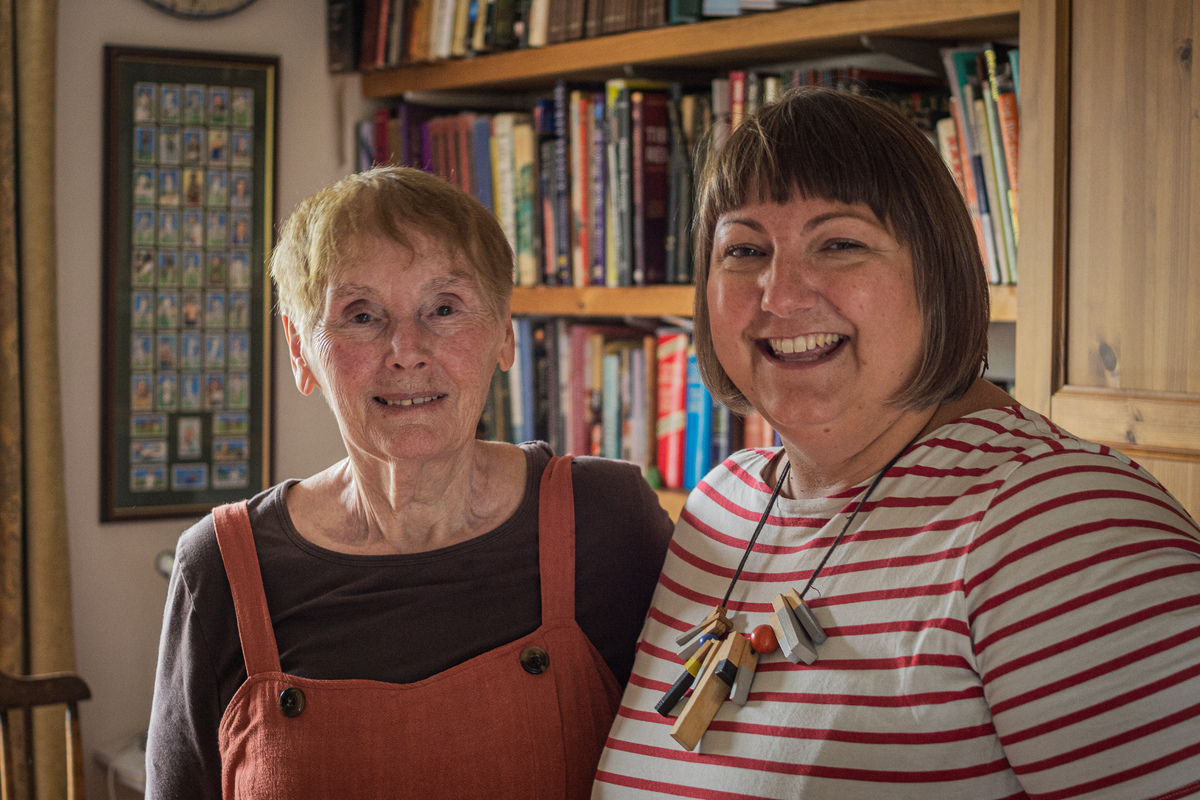
Our contributing editor Ella Foote and Doloranda Pember, Mercedes’ daughter. Photograph: Outdoor Swimmer
Mercedes has a list of world firsts in her swimming career, but the fact that she was a woman in that time was even more significant. She didn’t meet too much opposition, but she was refused to do an endurance swim at Leeds Pool in case she hurt herself and a doctor warned her that if she didn’t curb her activity she would never be able to have children.
“That was flat out prejudice,” says Doloranda. “To know this a doctor would have had to monitor a mass of women who climbed mountains and swam seas through their childbearing years. This is what women had to fight against, it must have been so frustrating for women who felt physically strong, or able to write, paint and do things – to be pushed down into domestic life.”
“My mother was from a working-class, immigrant background, without influence or financial support, which makes her success all the more extraordinary. She demonstrated to other women that it is within them to be strong.”





